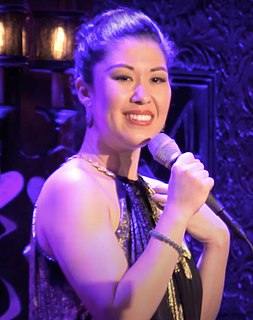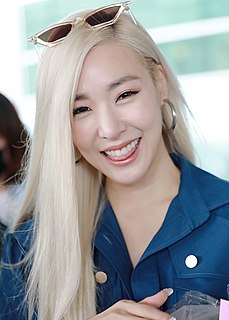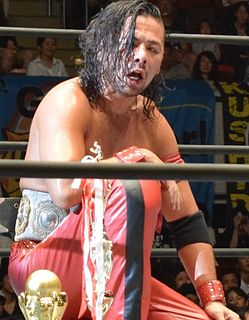A Quote by Henry Lau
When I moved from Canada to Korea, I experienced a massive culture shock. I wasn't familiar with Korean culture at all and was very surprised at the hierarchical elements of Korean culture. However, at the time I was determined to succeed so I became a sponge and just soaked in everything I could.
Related Quotes
I'm so used to America, used to the traffic in L.A., and I don't really feel it click with the Korean culture. But obviously, I have a Korean face, and I feel like that's just - you know, I can't walk around people like I'm, like, straight-up American. It's like, I'm Korean American. My parents are from Korea.
South Korea at the end of the Second World War had a very low level of literacy. But suddenly, like in Japan, they determined they were going in that direction. In 20 years' time, they had transformed themselves. So when people go on saying that it's all because of perennial culture, which you cannot change, that's not the way the South Korean economy was viewed before the war ended. But again within 30 years, people went on saying there's an ancient culture in Korea that has been pro-education, which is true.
I was on an army show, and in the army - especially in Korean culture - there's a very, very strict hierarchy. Obviously, you would not talk informally or disrespectfully to your commanding officer. But me, in my limited Korean, I basically told my commanding officer, 'Thou shalt forget!' The Korean public thought it was really funny.
I think the regime in North Korea is more fragile than people think. The country's economic system remains desperate, and one thing that could happen for example would be under a new government in South Korea, to get the South Korean government to live up to its own constitution, which says any Korean who makes it to South Korea, is a Korean citizen. A citizen of the Republic of Korea. And you could imagine the impact that would have inside North Korea if people thought, "If I could get out and make it to South Korea, I could have a different life."
Since the 1960s, mainstream media has searched out and co-opted the most authentic things it could find in youth culture, whether that was psychedelic culture, anti-war culture, blue jeans culture. Eventually heavy metal culture, rap culture, electronica - they'll look for it and then market it back to kids at the mall.



































